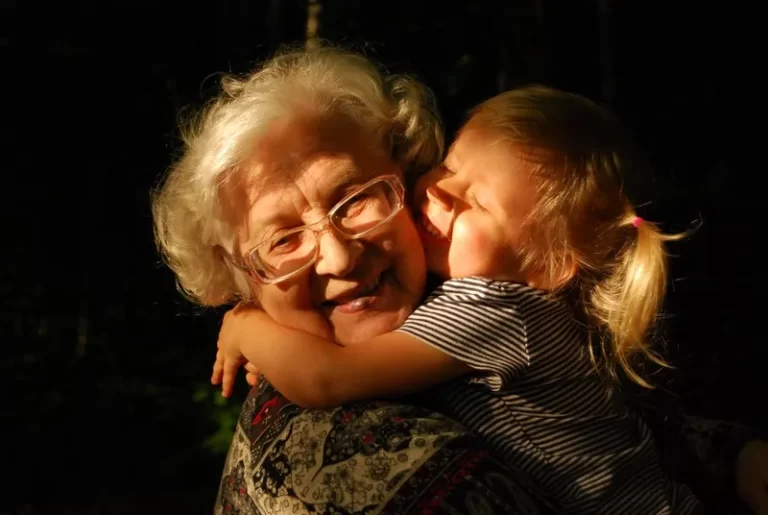Table of Contents
- The Regulation of Sexual Behaviour in Traditional Families
- Sexual Function in the Modern UK Context
- The Sociological Perspectives on Sexual Function
- The Changing Role of Families in Regulating Sexual Behaviour
- Conclusion
The family has long been regarded as one of the primary social institutions responsible for regulating sexual behaviour. Sociologically, the sexual function of families is seen as critical for maintaining social stability, ensuring appropriate sexual relationships, and setting boundaries for sexual conduct. This regulation helps to prevent social disorganisation and protect the moral fabric of society. For A-level sociology students, understanding the sexual function of families from a variety of sociological perspectives provides crucial insight into the broader role of families within social structures. This article will explore the sexual function of families through both traditional and contemporary lenses, focusing on the UK context, and will analyse how sociologists have viewed this aspect of family life over time.
The Regulation of Sexual Behaviour in Traditional Families
In traditional societies, the regulation of sexual behaviour was a key function of the family, closely tied to marriage and social expectations. Within these societies, sexual relations were generally expected to occur within the framework of marriage, which was viewed as a socially approved institution for sexual expression. By regulating sexual behaviour, families played a central role in ensuring social order and maintaining the integrity of kinship systems. Sexual relationships outside of marriage were typically considered immoral, and the consequences for engaging in such behaviour were often severe, particularly for women.
The functionalist perspective, particularly as developed by Talcott Parsons, viewed the family as a stabilising force within society. From this perspective, the family acts as a mechanism for regulating sexual behaviour by setting clear norms and expectations. Within the family, sexual activity is not only legitimised but also controlled through the institution of marriage. This control serves an essential function by reducing the potential for promiscuity, which could lead to social disorder. Functionalists argue that by providing a socially approved outlet for sexual expression, the family helps to maintain societal stability and continuity.
In traditional UK society, sexual regulation was heavily influenced by religious and cultural norms, which placed a high value on chastity and marital fidelity. The family was seen as the cornerstone of moral order, and sexual behaviour that deviated from societal expectations was often met with social condemnation. Marriage was a critical institution for ensuring that sexual relationships were socially approved and that children were born within a stable, legal union. This focus on regulating sexual behaviour within the family was central to the maintenance of social cohesion.
Sexual Function in the Modern UK Context
In modern UK society, the sexual function of families has undergone significant changes. While the regulation of sexual behaviour remains an important aspect of family life, broader social attitudes towards sex and relationships have evolved. The rise of individualism, shifts in gender roles, and increased acceptance of diverse sexual orientations have led to a more flexible approach to sexual regulation within families. Nevertheless, families continue to play a role in shaping the sexual behaviour of their members, particularly through the transmission of values and expectations.
One of the most significant changes in the modern context is the increased acceptance of premarital sex and cohabitation. In contrast to traditional norms, where sexual relations were confined to marriage, contemporary UK society has become more accepting of sexual relationships outside of the marital framework. This shift reflects broader societal changes, including the secularisation of society and the rise of individual autonomy. Despite these changes, families still provide guidance on sexual behaviour, often based on the values and beliefs that parents seek to instil in their children.
The increasing visibility and acceptance of same-sex relationships in the UK also highlight the evolving sexual function of families. In the past, same-sex relationships were often stigmatised or hidden from public view, but modern families are increasingly inclusive of diverse sexual orientations. Families now play a role in supporting and affirming the sexual identities of their members, particularly for LGBTQ+ individuals. This shift represents a broader transformation in the way families regulate sexual behaviour, moving away from a narrow focus on heteronormativity to a more inclusive understanding of sexuality.
The Sociological Perspectives on Sexual Function
Functionalist Perspective
From the functionalist perspective, as outlined by Parsons, the regulation of sexual behaviour within the family serves an essential function for maintaining social stability. Functionalists argue that controlling sexual behaviour within the family prevents social disorganisation and reduces the likelihood of deviant sexual practices. By confining sexual activity to marriage, functionalists believe that families help maintain societal norms regarding sexuality and reproduction. This regulation ensures that children are born into a stable, supportive environment, which is critical for their socialisation and development.
In addition to controlling sexual behaviour, the family’s sexual function also contributes to the emotional stability of its members. Parsons suggested that marriage provides a legitimate outlet for sexual expression, which strengthens the emotional bonds between spouses. This emotional bond, in turn, contributes to the overall stability of the family unit, ensuring that individuals can function effectively in other areas of life, such as work and education. From a functionalist perspective, the sexual function of the family is thus closely tied to its role in stabilising both individual lives and society as a whole.
Feminist Critique
Get the full article AD FREE. Join now for full access to all premium articles.
View Plans & Subscribe Already a member? Log in.





